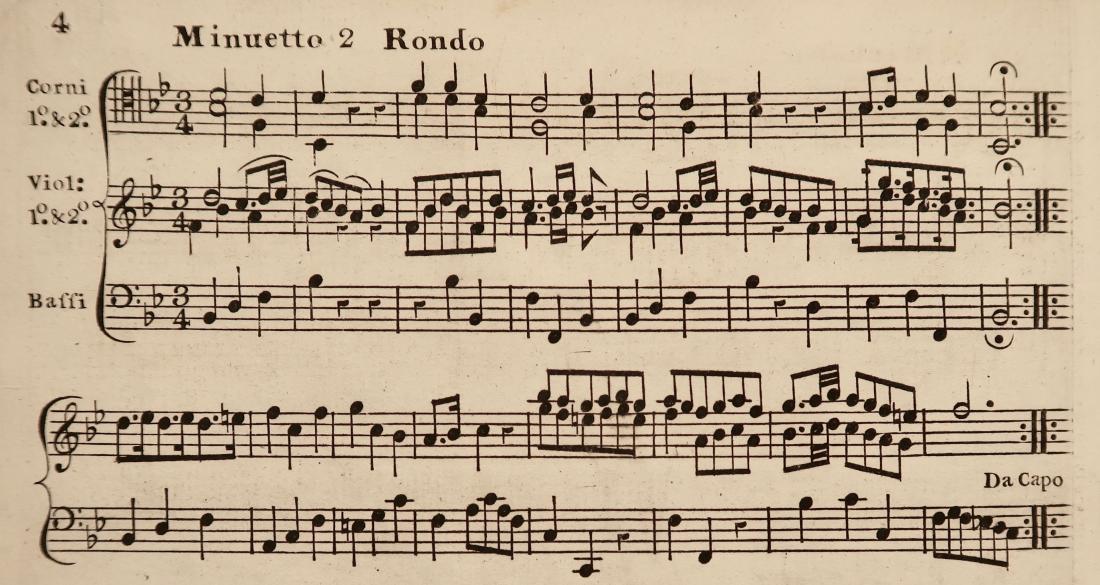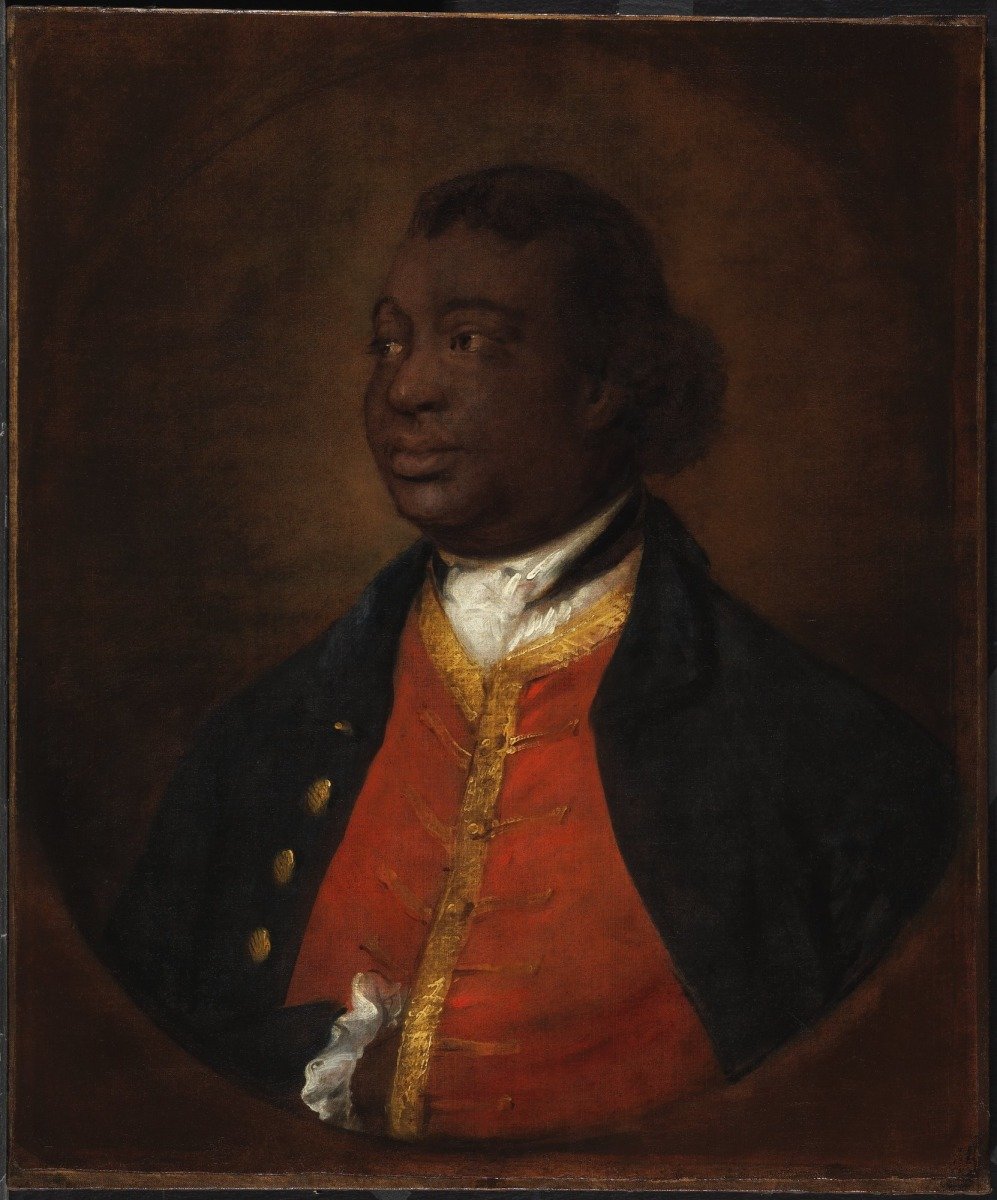
I. Sancho: Minuets, Cotillons & Country Dances (c.1767) - Minuets 1-3
Minuets Cotillons & Country Dances for the Violin, Mandolin, German Flute & Harpsichord. Composed by an African. Most Humbly Inscribed to His Grace Henry Duke of Buccleugh, &c, &c, &c. (London: Printed for the Author, [c.1767])
-
Minuetto I
-
Minuetto 2 Rondo
-
Minuet 3
Image courtesy of the British Library Board, Music Collections a.9.b.(1.), p. 4, digital copy available: https://www.bl.uk/collection-items/minuets-cotillons-and-country-dances-by-ignatius-sancho
To download mp3 files either click on the three dots or right-click on the player and choose the save/download option.
Recording Details:
Peter Moutoussis and Alexander Boukikov - horns
Wiebke Thormählen and Taisia Sandetcaia - violins
Joseph Crouch - cello
Recorded at the Royal College of Music, London, 20 May 2021
Ignatius Sancho (1729?-1780) was a black composer who was seemingly born into slavery and brought to England as a child. Supported by John, 2nd Duke of Montagu, he served as a butler in the Montagu household after the Duke’s death and later became valet to George Brudenell, 4th Earl of Cardigan. By late 1773, ill health forced him to retire from service and the following year he set up a grocery shop with his wife at 19 Charles Street in Westminster. As a property owner, he became the first known black man to vote in parliamentary elections. In 1766 Sancho commenced his correspondence with the author, Laurence Sterne, which was later published and contributed to Sancho’s renown in his lifetime. His social circle encompassed aristocrats, booksellers, writers, actors, and artists, including David Garrick, Henry William Bunbury and Joseph Nollekens. His artistic endeavours reportedly included two stage works (now presumed lost), in addition to four volumes of dances and a collection of songs (Carretta 2015; Petchey 2019; Wright 1981).
Sancho’s letters suggest a strong sense of sociability and enjoyment with friends and family, and evoke a breadth of musical engagement and erudition. In August 1777 Sancho took his family to Vauxhall Gardens, declaring “three great girls – a boy – and a fat old fellow – were as happy and pleas’d as a fine evening – fine place – good songs – much company – and good music could make them. – Heaven and Earth! – how happy, how delighted were the girls!” The following year he gifted a ticket to a friend for a benefit performance for the violinist Felice Giardini, so that the recipient could “judge of fidlers’ taste and fidlers’ consequence in our grand metropolis – the ticket was a present from the great Giardini – to the lowly Sancho – and I offer it as a tribute of musical affection to thy worthy partner”. Sancho also clearly gave music to his correspondents. By early November 1777 he had penned a letter to his friend Margaret Cocksedge, referring to a “little dance (which I like because I made it)” and entreating that she “will make Jack play – and amongst you contrive a figure”.
Much of Sancho’s music indicates personal connections. His Minuets Cotillons & Country Dances is dedicated to Henry Scott, 3rd Duke of Buccleuch. It was conceivably a wedding present upon his marriage in 1767 to Lady Elizabeth Montagu, daughter of George Brudenell and Lady Mary Montagu. As the collection was “Printed for the Author”, it is likely that the Montagu family funded its publication. The first three minuets in this collection are scored for two horns, two violins and bassi, a common enough combination for minuets published at this time. Sancho would also have had connections to London’s black community, whose members were likely to have skill on the violin and French horn, particularly as the latter was useful for servants engaged as huntsmen.
Further Reading:
Carretta, Vincent, ed. 2015. Letters of the Late Ignatius Sancho, An African. Peterborough, Ontario: Broadview Editions.
Petchey, Sally-Ann. [2019]. Dances for a Princess: “Cotillions etc. Humbly Dedicated (with Permission) To The Princess Royal By Her Royal Highnesses Most Obedient Servant Ignatius Sancho”.
Wright, Josephine R.B., ed. 1981. Ignatius Sancho (1729-1780), An Early African Composer in England: The Collected Editions of His Music in Facsimile. New York and London: Garland Publishing.

Thomas Gainsborough, Ignatius Sancho, 1768, oil on canvas, 73.7 x 62.2 cm. Purchased 1907, National Gallery of Canada, Ottawa. Photo: NGC.
